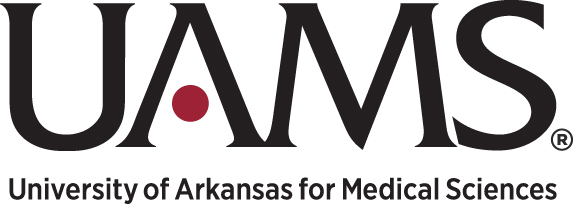Media Contacts:
Andrea Peel, 501-686-8996
Wireless phone: 501-351-7903
Liz Caldwell, 501-686-8995
Wireless phone: 501-350-4364
UAMS Researchers Receive National Science Foundation Grant to Study Regulation of Emotion
Newswise — LITTLE ROCK – A team of University of Arkansas for Medical Sciences (UAMS) research scientists recently received a $422,610 grant from the National Science Foundation to study the mechanisms of control of emotional responses of men and women using functional magnetic resonance imaging (fMRI).
Keith Bush, Ph.D., an assistant professor in the UAMS College of Medicine Department of Psychiatry, is the principal investigator of the study funded by the National Science Foundation, a federal agency that funds nearly a quarter of all basic research conducted by U.S. colleges and universities. He and co-investigator Andrew James, Ph.D., an associate professor in the Department of Psychiatry, are with the Brain Imaging Research Center, part of UAMS’ Psychiatric Research Institute.
Bush, whose background is in computer science, plans to use the Brain Imaging Research Center’s MRI scanner to analyze the brain responses of 81 healthy people between ages 18 and 65. He will be studying multiple dimensions of human emotional expression — such as positive versus negative or levels of arousal — in an effort to understand the emotional responses of humans and how they control them.
“We’re going to be showing them emotionally rich images while they are in the scanner,” said Bush. “Using fMRI, we’ll be able to see their brain reactions in real time and learn more about how we as humans decode the complex social messages within emotions and how we regulate our responses. There’s a lot of evidence to suggest that if we gain an understanding of how the healthy brain reacts, then we will gain valuable insight into the mechanisms of prevalent mood and anxiety disorders.”
“We know relatively little as to how specifically we deploy control systems to regulate our emotional brain,” according to Clint Kilts, Ph.D., director of the Brain Imaging Research Center. “This makes this project vital in recognizing and correcting control issues for patients with problems like depression and bipolar disorder. This study intersects the fields of affective and computational neuroscience, machine learning, engineering control systems and the technical advances of real-time functional brain imaging.
“If you’re going to understand the mechanisms of the brain, you’re going to have to first understand them in the healthy population,” said Kilts. “This project will go a long way towards helping people understand, in a healthy sense, ‘how am I doing in my own world.’ It’s going to generate new knowledge on a problem that we’ve been studying for centuries.”
UAMS is the state’s only health sciences university, with colleges of Medicine, Nursing, Pharmacy, Health Professions and Public Health; a graduate school; a hospital; a northwest Arkansas regional campus; a statewide network of regional centers; and seven institutes: the Winthrop P. Rockefeller Cancer Institute, the Jackson T. Stephens Spine & Neurosciences Institute, the Myeloma Institute, the Harvey & Bernice Jones Eye Institute, the Psychiatric Research Institute, the Donald W. Reynolds Institute on Aging and the Translational Research Institute. It is the only adult Level 1 trauma center in the state. UAMS has 2,870 students, 799 medical residents and five dental residents. It is the state’s largest public employer with more than 10,000 employees, including about 1,200 physicians who provide care to patients at UAMS and its regional campuses throughout the state, Arkansas Children’s Hospital, the VA Medical Center and Baptist Health. Visit www.uams.edu or www.uamshealth.com. Find us on Facebook, Twitter, YouTube or Instagram.
